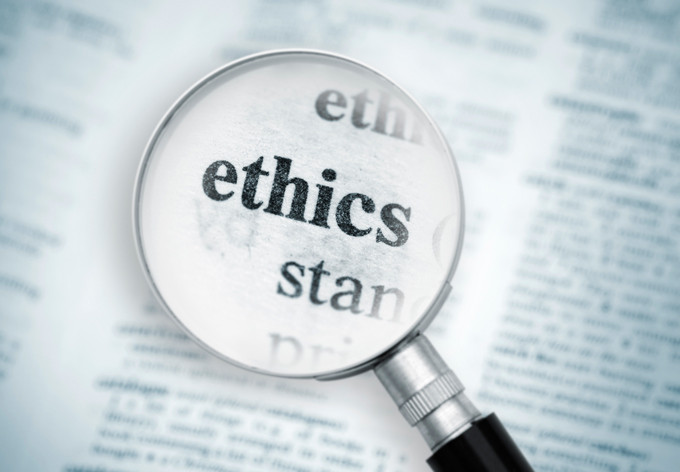
PROFrancisco Schmidt, CC BY-NC
By C. Daryl Cameron | Assistant Professor of Psychology and Research Associate in the Rock Ethics Institute
Michael Inzlicht, University of Toronto
and William A. Cunningham, University of Toronto
Is it possible to run out of empathy? ![]()
That’s the question many are asking in the wake of the U.S. presidential election. Thousands have marched on streets and airports to encourage others to expand their empathy for women, minorities and refugees. Others have argued that liberals lack empathy for the plight of rural Americans.
Against this backdrop, some scholars have recently come out against empathy, saying that it is overhyped, unimportant and, worse, dangerous. They make this recommendation because empathy appears to be limited and biased in ethically problematic ways.
As psychologists who study empathy, we disagree.
Based on advances in the science of empathy, we suggest that limits on empathy are more apparent than real. While empathy appears limited, these limits reflect our own goals, values and choices; they do not reflect limits to empathy itself.
The ‘dark side’ of empathy
Over the past several years, a number of scholars, including psychologists and philosophers, have made arguments that empathy is morally problematic.
For example, in a recently published and thought-provoking book, “Against Empathy,” psychologist Paul Bloom highlights how empathy, so often touted for its positive outcomes, may have biases and limitations that make it a poor guide for everyday life.

N i c o l a, CC BY
Bloom claims that empathy is a limited-capacity resource, like a fixed pie or fossil fuel that quickly runs out. He suggests that,
“We are not psychologically constituted to feel toward a stranger as we feel toward someone we love. We are not capable of feeling a million times worse about the suffering of a million than about the suffering of one.”
Such views are echoed by other scholars as well. For example, psychologist Paul Slovic suggests that “we are psychologically wired to help only one person at a time.”
Similarly, philosopher Jesse Prinz has argued that empathy is prejudiced and leads to “moral myopia,” making us act more favorably toward people we have empathy for, even if this is unfair.
For the same reason, psychologist Adam Waytz suggests that empathy can “erode ethics.” Slovic, in fact, suggests that “our capacity to feel sympathy for people in need appears limited, and this form of compassion fatigue can lead to apathy and inaction.”
Are there limits?
The empathy that the scholars above are arguing against is emotional: It’s known scientifically as “experience sharing,” which is defined as feeling the same emotions that other people are feeling.
This emotional empathy is thought to be limited for two main reasons: First, empathy appears to be less sensitive to large numbers of victims, as in genocides and natural disasters. Second, empathy appears to be less sensitive to the suffering of people from different racial or ideological groups than our own.
In other words, in their view, empathy seems to put the spotlight on single victims who look or think like us.
Empathy is a choice
We agree that empathy can often be weaker in response to mass suffering and to people who are dissimilar from us. But the science of empathy actually suggests a different reason for why such deficits emerge.
As a growing body of evidence shows, it’s not that we are unable to feel empathy for mass suffering or people from other groups, but rather that sometimes we “choose” not to. In other words, you choose the expanse of your empathy.

Riccardo Cuppini, CC BY-NC-ND
There is evidence that we choose where to set the limits of empathy. For example, whereas people usually feel less empathy for multiple victims (versus a single victim), this tendency reverses when you convince people that empathy won’t require costly donations of money or time. Similarly, people show less empathy for mass suffering when they think their helping won’t make any difference or impact, but this pattern goes away when they think they can make a difference.
This tendency also varies depending on an individual’s moral beliefs. For instance, people who live in “collectivist cultures,” such as Bedouin individuals, do not feel less empathy for mass suffering. This is perhaps because people in such cultures value the suffering of the collective.
This can also be changed temporarily, which makes it seem even more like a choice. For example, people who are primed to think about individualistic values show less empathic behaviors for mass suffering, but people who are primed to think about collectivistic values do not.
We argue that if indeed there was a limit on empathy for mass suffering, it should not vary based upon costs, efficacy or values. Instead, it looks like the effect shifts based on what people want to feel. We suggest that the same point applies to the tendency to feel less empathy for people different from us: Whether we extend empathy to people who are dissimilar from us depends on what we want to feel.
In other words, the scope of empathy is flexible. Even people thought to lack empathy, such as psychopaths, appear able to empathize if they want to do so.
Why seeing limits to empathy is problematic
Empathy critics usually do not talk about choice in a logically consistent manner; sometimes they say individuals choose and direct empathy willfully, yet other times say we have no control over the limits of empathy.
These are different claims with different ethical implications.
The problem is that arguments against empathy treat it as a biased emotion. In doing so, these arguments mistake the consequences of our own choices to avoid empathy as something inherently wrong with empathy itself.
We suggest that empathy only appears limited; seeming insensitivity to mass suffering and dissimilar others is not built into empathy, but reflect the choices we make. These limits result from general trade-offs that people make as they balance some goals against others.
We suggest caution in using terms like “limits” and “capacity” when talking about empathy. This rhetoric can create a self-fulfilling prophecy: When people believe that empathy is a depleting resource, they exert less empathic effort and engage in more dehumanization.
So, framing empathy as a fixed pie misses the mark – scientifically and practically.
What are the alternatives?
Even if we accepted that empathy has fixed limits – which we dispute, given the scientific evidence – what other psychological processes could we rely upon to be effective decision-makers?

Fr Lawrence Lew, O.P., CC BY-NC
Some scholars suggest that compassion is not as costly or biased as empathy, and so should be considered more trustworthy. However, compassion can also be insensitive to mass suffering and people from other groups, just like empathy.
Another candidate is reasoning, which is considered to be free from emotional biases. Perhaps, cold deliberation over costs and benefits, appealing to long-term consequences, may be effective. Yet this view overlooks how emotions can be rational and reasoning can be motivated to support desired conclusions.
We see this in politics, and people use utilitarian principles differently depending on their political beliefs, suggesting principles can be biased too. For example, a study found that conservative participants were more willing to accept consequential trade-offs of civilian lives lost during wartime when they were Iraqi instead of American. Reasoning may not be as objective and unbiased as empathy critics claim.
Whose standard of morality are we using?
Even if reasoning was objective and didn’t play favorites, is this what we want from morality? Research suggests that for many cultures, it can be immoral if you don’t focus on the immediate few who share your beliefs or blood.
For example, some research finds that whereas liberals extend empathy and moral rights to strangers, conservatives are more likely to reserve empathy for their families and friends. Some people think that morality should not play favorites; but others think that morality should be applied more strongly to family and friends.
So even if empathy did have fixed limits, it doesn’t follow that this makes it morally problematic. Many view impartiality as the ideal, but many don’t. So, empathy takes on a specific set of goals given a choice of a standard.
By focusing on apparent flaws in empathy and not digging deeper into how they emerge, arguments against empathy end up denouncing the wrong thing. Human reasoning is sometimes flawed and it sometimes leads us off course; this is especially the case when we have skin in the game.
In our view, it is these flaws in human reasoning that are the real culprits here, not empathy, which is a mere output of these more complex computations. Our real focus should be on how people balance competing costs and benefits when deciding whether to feel empathy.
Such an analysis makes being against empathy seem superficial. Arguments against empathy rely on an outdated dualism between biased emotion and objective reason. But the science of empathy suggests that what may matter more is our own values and choices. Empathy may be limited sometimes, but only if you want it to be that way.
C. Daryl Cameron is an assistant professor of psychology and a research associate in the Rock Ethics Institute at Penn State. Michael Inzlicht is a professor of psychology and management at University of Toronto and William A. Cunningham is a professor of psychology at University of Toronto. This article was originally published on The Conversation. Read the original article.



